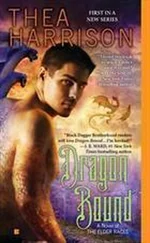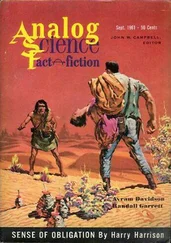M Harrison - Viriconium
Здесь есть возможность читать онлайн «M Harrison - Viriconium» весь текст электронной книги совершенно бесплатно (целиком полную версию без сокращений). В некоторых случаях можно слушать аудио, скачать через торрент в формате fb2 и присутствует краткое содержание. Жанр: Фэнтези, на английском языке. Описание произведения, (предисловие) а так же отзывы посетителей доступны на портале библиотеки ЛибКат.
- Название:Viriconium
- Автор:
- Жанр:
- Год:неизвестен
- ISBN:нет данных
- Рейтинг книги:3 / 5. Голосов: 1
-
Избранное:Добавить в избранное
- Отзывы:
-
Ваша оценка:
- 60
- 1
- 2
- 3
- 4
- 5
Viriconium: краткое содержание, описание и аннотация
Предлагаем к чтению аннотацию, описание, краткое содержание или предисловие (зависит от того, что написал сам автор книги «Viriconium»). Если вы не нашли необходимую информацию о книге — напишите в комментариях, мы постараемся отыскать её.
Viriconium — читать онлайн бесплатно полную книгу (весь текст) целиком
Ниже представлен текст книги, разбитый по страницам. Система сохранения места последней прочитанной страницы, позволяет с удобством читать онлайн бесплатно книгу «Viriconium», без необходимости каждый раз заново искать на чём Вы остановились. Поставьте закладку, и сможете в любой момент перейти на страницу, на которой закончили чтение.
Интервал:
Закладка:
“At the centre or focal point of the gardens, from which the flower beds fell back modestly in arcs, a statue stood. Along its upraised arms drops of water gathered, trembled in the wind, fell. One of the girls walked up and put her tray on a bench next to it. She buried her arms brusquely in the plinth of the statue and brought out a cloth to wipe her hands. This done, she stared ahead absently, as if she had begun to suspect she was caught up in two worlds. Though she belonged to neither her image dominated both of them, a big plain patient girl of seventeen or eighteen with chipped nail varnish and a tired back from sorting cutlery all morning. Suddenly she gave a delighted laugh.
“She looked directly out at me and waved. She beckoned. I could see her mouth open and close to make the words ‘Here! Over here!’
“She’s alive, I thought. It was a shock. I felt that I was alive, too. I got up and ran straight into the plate-glass window and was concussed. Someone dropped a tray of knives. I heard a peculiar voice, going away from me very fast, say: ‘What’s he done? Oh, what’s he done now?’ Then those first ten or twelve years of my life were sealed away from me neatly like the bubble in a spirit level-clearly visible but strange and inaccessible, made of nothing. I knew immediately that though what I had seen was not Viriconium, Viriconium nevertheless awaited me. I knew, too, how to find it.”
People are always pupating their own disillusion, decay, age. How is it they never suspect what they are going to become, when their faces already contain the faces they will have twenty years from now?
“You would learn nothing from Dr. Petromax’s mirror even if you could find it,” Mr. Ambrayses said dismissively. “First exhaust the traditional avenues of the research.” And as if in support of his point he brought me a cardboard box he had found among the rubbish on a building site in Halifax, the words World Mosaic printed boldly across its lid. But my face was down to the bone with ambition.
Old people sit more or less patiently in railway carriages imagining they have bought a new bathroom suite, lavender, with a circular bath they will plumb-in themselves. April comes, the headlines read, BIBLE BOY MURDERED; KATIE IN NUDE SHOCK. The sun moves across the patterned bricks outside the bus station, where the buses are drawn up obliquely in a line: from the top deck of one you can watch in the next a girl blowing her nose. You don’t think you can bear to hear one more woman in Sainsbury’s saying to her son as she shifts her grip on her plastic shopping bag with its pink and grey Pierrot, “Alec, get your foot off the biscuits. I shan’t tell you again. If you don’t get your foot off the biscuits, Alec, I shall knock it straight on the floor.”
April again. When the sun goes in, a black wind tears the crocus petals off and flings them down the ring road.
“I can’t wait,” I told Mr. Ambrayses.
I couldn’t wait any longer. I followed Dr. Petromax from the Blue Rooms (“Meals served all day”) to the Alpine Coffee House, Merrie England, the Elite Cafe amp; Fish Restaurant. I let him tell me his story in each of them. Though details changed, it remained much the same: but I was certain he was preparing himself to say more. One day I kept quiet until he had ended as usual, “Viriconium nevertheless awaited me,” then I said openly to him:
“And yet you’ve never been there. You had the clue as a child. You found the doorway but you never went through it.”
We were in the El Greco, at the pedestrian end of New Street. While he waited for the waitress he stared across the wide flagged walk, with its beech saplings and raised flower beds, at the window of C amp;A’s, his sore brown eyes full of patience between their bruised-looking lids. When she came she brought him plaice and chips. “Oh, hello!” she said. “We haven’t seen you for a while! Feeling any better?” He ate the chips one by one with his fork, pouring vinegar on them between every mouthful, only afterwards scraping the white of the plaice off its slippery fragile skin until he had the one in a little pile on the side of the plate and the other intact, glistening slightly, webbed with grey, in the middle. His dirty hands were as deft and delicate as a boy’s at this. Once or twice he looked up at me and then down again.
“Who told you that?” he said quietly when he had finished eating. “Ambrayses?”
He put down his knife and fork.
“Three of us set out,” he said. “I won’t say who. Two got through easily, the third tried to go back halfway. On the right day you can still catch sight of him in the mirror, spewing up endlessly. He doesn’t seem to know where he is, but he’s aware of you.
“We lived there for three months, in some rooms on Salt Lip Road behind the Rue Serpolet. The streets stank. At six in the morning a smell so corrupt came up from the Yser Canal it seemed to blacken the iron lamp-posts; we would gag in our dreams, struggle for a moment to wake up, and then realise that the only escape was to sleep again. It was winter, and everything was filthy. Inside, the houses smelled of vegetable peel, sewage, perished rubber. Everyone in them was ill. If we wanted a bath we had to go to a public washhouse on Mosaic Lane. The air was cold; echoes flew about under the roof; the water was like lead. Sometimes it was hardly like water at all. There were some famous murals there, but they were so badly kept up you could make furrows in the grease. Scrape it off and you’d see the most beautiful stuff underneath, chalky reds, pure blues, children’s faces!
“We stuck it for three months. We knew there were other quarters of the city, where things must be better, but we couldn’t find our way about. At first we were so tired; later we thought we were being followed by some sort of secret police. Towards the end the man I was with was ill all the time; he started to hear the bathhouse echoes even while he was in bed; he couldn’t walk. It was a hard job getting him out. The night I did it you could see the lights of the High City, sweet, magical, like paper lanterns in a garden, filling up the emptiness. If only I’d gone towards them, walked straight towards them!”
I stared at him.
“Was that all?” I said.
“That was all.”
His hands had begun to tremble, and he looked down at them. “Oh, yes. I was there. What else could have left me like this?” He got up and went to the lavatory. When he came back he said, “Ambrayses has a lot to learn about me.” He bent down, his eyes now looking very vague and sick, as if he was already forgetting who I was or what I wanted, and quickly whispered something in my ear: then he left.
As he walked across the street he must have disturbed the pigeons, because they all flew up at once and went wheeling violently about between the buildings. As they passed over her an Indian woman, who had been sitting in the sunshine examining a length of embroidered cloth, winced and folded it up hurriedly. Though they soon quietened down, coming to rest in a line along the top of the precast C amp;A facade, she continued to look frightened and resentful-biting her lips, making a face, moving her shoulders repeatedly inside her tight leather coat, from the sleeves of which emerged thin wrists and hands, powdery brown, fingernails lacquered a plum colour.
The older Asian women fiddle constantly with their veils, plucking with wrinkled fingers at the lower part of their faces. In the bus station they lift their feet-automatically looking away from him-to let the cleaner run his brush along the base of the plastic banquette. They have features as coarse and wise as an elephant’s but underneath they are in a continual nervous fidget.
The furniture in Mr. Ambrayses’s front room, inert great drop-leaf tables and sideboards with stained, lifting veneers, was strewn with the evidence he had accumulated: curled-up grainy photographs, each a detail enlarged in black and white from some colour snap until, its outline fatally eroded and its context yawing, it reached monstrous or curious conclusions; articles cut from yellowed newsprint found lining the drawers of an empty house; cassettes furred with dust, which when you played them gave out only the pure electric silence of the machine, punctuated once or twice by feral static; his notebooks, where in a clear hand he had written, Each event, struck lightly against its own significance, can be excited into throwing off a spark; it is this energetic mote which lies at the heart of metaphor-and of life; or: The lesson we learn too late is that we cannot have only by wanting. Then on another page, Nothing impedes us; we need only learn to act.
Читать дальшеИнтервал:
Закладка:
Похожие книги на «Viriconium»
Представляем Вашему вниманию похожие книги на «Viriconium» списком для выбора. Мы отобрали схожую по названию и смыслу литературу в надежде предоставить читателям больше вариантов отыскать новые, интересные, ещё непрочитанные произведения.
Обсуждение, отзывы о книге «Viriconium» и просто собственные мнения читателей. Оставьте ваши комментарии, напишите, что Вы думаете о произведении, его смысле или главных героях. Укажите что конкретно понравилось, а что нет, и почему Вы так считаете.











